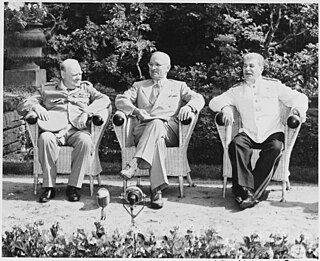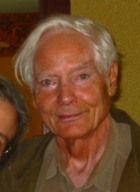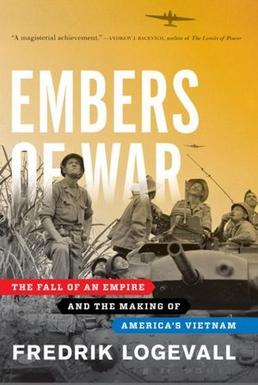
The Pulitzer Prizes are 23 annual awards given by Columbia University in New York for achievements in the United States in "journalism, arts and letters." They were established in 1917 by the will of Joseph Pulitzer, who had made his fortune as a newspaper publisher.

The Potsdam Conference was held at Potsdam in the Soviet occupation zone from July 17 to August 2, 1945, to allow the three leading Allies to plan the postwar peace, while avoiding the mistakes of the Paris Peace Conference of 1919. The participants were the Soviet Union, the United Kingdom, and the United States. They were represented respectively by General Secretary Joseph Stalin, Prime Ministers Winston Churchill and Clement Attlee, and President Harry S. Truman. They gathered to decide how to administer Germany, which had agreed to an unconditional surrender nine weeks earlier. The goals of the conference also included establishing the postwar order, solving issues on the peace treaty, and countering the effects of the war.

The Pulitzer Prize for History, administered by Columbia University, is one of the seven American Pulitzer Prizes that are annually awarded for Letters, Drama, and Music. It has been presented since 1917 for a distinguished book about the history of the United States. Thus it is one of the original Pulitzers, for the program was inaugurated in 1917 with seven prizes, four of which were awarded that year. The Pulitzer Prize program has also recognized some historical work with its Biography prize, from 1917, and its General Non-Fiction prize, from 1962.

The Pulitzer Prize for Biography is one of the seven American Pulitzer Prizes annually awarded for Letters, Drama, and Music. The award honors "a distinguished and appropriately documented biography by an American author." Award winners received $15,000 USD.

Frank Billings Kellogg was an American lawyer, politician, and statesman who served in the U.S. Senate and as U.S. Secretary of State. He co-authored the Kellogg–Briand Pact, for which he was awarded the Nobel Peace Prize in 1929.

Stephen Bonsal was an American journalist, war correspondent, author, diplomat, and translator, who won the 1945 Pulitzer Prize for History.

William Stanley Merwin was an American poet who wrote more than fifty books of poetry and prose and produced many works in translation. During the 1960s anti-war movement, Merwin's unique craft was thematically characterized by indirect, unpunctuated narration. In the 1980s and 1990s, his writing influence derived from an interest in Buddhist philosophy and deep ecology. Residing in a rural part of Maui, Hawaii, he wrote prolifically and was dedicated to the restoration of the island's rainforests.
John Fisher Burns is a British journalist, and the winner of two Pulitzer Prizes. He was the London bureau chief for The New York Times, where he covered international issues until March 2015. Burns also frequently appears on PBS. He has been called "the dean of American foreign correspondents."
The Pulitzer Prizes for 1961 are:

Princeton University Press is an independent publisher with close connections to Princeton University. Its mission is to disseminate scholarship within academia and society at large.
World War II officially ended in Asia on September 2, 1945, with the surrender of Japan on the USS Missouri. Before that, the United States dropped two atomic bombs on Japan, and the Soviet Union declared war on Japan, causing Emperor Hirohito to announce the acceptance of the Potsdam Declaration on August 15, 1945, which would eventually lead to the surrender ceremony on September 2.
Jimmie Lee Hoagland is a Pulitzer prize-winning American journalist. He is a contributing editor to The Washington Post, since 2010, previously serving as an associate editor, senior foreign correspondent, and columnist.
Arthur Clarence Walworth was an American writer and biographer. Of his works from the 1930s to 1980s, Walworth wrote two books on Woodrow Wilson. As part of a 1958 two volume biography on Wilson, Walworth received the Pulitzer Prize for Biography or Autobiography in 1959 with Woodrow Wilson: American Prophet. His other book on Wilson was Wilson and his Peacemakers in 1986. Other topics Walworth wrote on were about Matthew C. Perry and a timeline between World War I and the Paris Peace Conference. Apart from writing, Walworth edited and sold academic works for Houghton Mifflin Company between the late 1920s to early 1940s. He also worked with the United States Office of War Information in 1943.
Charles Leffingwell Bartlett was an American journalist who won the 1956 Pulitzer Prize for National Reporting "for his original disclosures that led to the resignation of Harold E. Talbott as Secretary of the Air Force."
Herbert Feis was an American historian, author, and economist who was the Advisor on International Economic Affairs in the US Department of State during the Herbert Hoover and Franklin Roosevelt administrations.

Isabel Wilkerson is an African-American journalist and the author of The Warmth of Other Suns: The Epic Story of America's Great Migration (2010) and Caste: The Origins of Our Discontents (2020). She is the first woman of African-American heritage to win the Pulitzer Prize in journalism.
Henry James III was an American writer who won the Pulitzer Prize for Biography or Autobiography in 1931. James, who was described as "delightful, rather pedantic, crisp, and humorous," was the son of William James and the nephew of novelist Henry James.

Embers of War: The Fall of an Empire and the Making of America's Vietnam is a 2012 book by historian Fredrik Logevall, then a professor at Cornell University. The book won the 2013 Pulitzer Prize for History, the inaugural American Library in Paris Book Award, and the 2013 Arthur Ross Book Award and was a runner-up for the Cundill Prize. The book covers the Vietnam conflict right from the 1919 Versailles Peace Conference till 1959, when the first American soldiers are killed in an ambush near Saigon in Vietnam, focusing on the Indochina War between France and the Viet Minh.

Viet Thanh Nguyen is a South Vietnamese-born American professor and novelist. He is the Aerol Arnold Chair of English and Professor of English and American Studies and Ethnicity at the University of Southern California.
John Alexander Carroll was an American academic between the 1950s to 1980s. During this time period, he primarily worked for the University of Arizona and Troy State University. While with Arizona, Carroll created Arizona and the West in 1959. He remained as the journal's editor until 1963.











